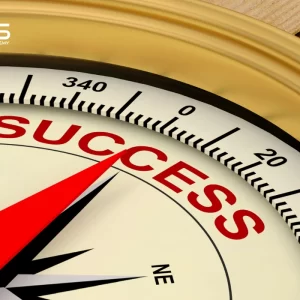Esquema del curso
1. The Agile Coach
An Agile Coach is an advanced facilitator of business practice who has achieved an expert level in lean/Agile practices and one or more knowledge domains. Agile Coaches have developed professional coaching, mentoring and/or training skills and realize that their skill as a coach is developed through working with others and continuously learning about and improving their coaching skillset. To assist you in becoming more proficient in your coaching, you will learn about:
- “Your” definition of Agile coaching
- The Agile coaching mindset
- Defining Agile team facilitation
- Agile team facilitator behaviors
- Assessing one’s ability to serve the team
- Responsibilities and skills of the coach
- Achieving self-awareness/self-management in the coach
- Developing more advanced Agile coaching skill
- Setting boundaries for coaching
- Internal vs. external coaches
- Defining the coaching “contract”
- Designing a coaching alliance
2. The Coach as Facilitator
A facilitator is someone who helps a group identify common objectives and then offers group processes to achieve that defined outcome while maintaining neutrality. A skilled facilitator consciously embodies self-awareness, self-management, bias management, while conveying openness and enthusiasm. An Agile Coach facilitates more than meetings. An Agile Coach facilitates participation, collaboration and engagement from the team and organization. We will discuss and practice:
- Facilitation and the facilitator stance
- Definition of facilitation
- The facilitation of meetings
- Designing meetings for collaboration
- Facilitating full participation and engagement
- Facilitating collaboration
- Facilitating team decision-making
3. The Coach as Professional Coach
Effective Agile coaches know the parameters of their job. They avidly take up their responsibilities and help others take up theirs. They are able to clearly articulate the differences between their role and that of others in the organization such as product owner, project manager, program manager and functional manager. Agile Coaches are able to communication their role and set agreements with their client to identify what this looks like. Exploring these concepts we will cover:
- The coaching stance
- Maintaining neutrality in coaching
- Self-awareness and self-management
- Holding the client’s agenda
- Issue identification and exploration
- Action commitment and achievement
- Professional coaching skills
4. The Coach as Mentor
Successful Agile coaches have learned to not go it alone. They have acquired their skills by calling on the skills and knowledge of mentors. Through being mentored, they learn to mentor others. As a group, we will explore mentorship – the process of formally and informal sharing knowledge via social contracts. Specifically, we will look into:
- Mentoring and coaching the Agile roles
- Mentoring and coaching transitions and practices
- Understanding the individual change cycle
- Identifying and handling resistance from individuals
- Mentoring vs. coaching
5. The Coach as Teacher
The terms coaching and teaching are often used interchangeably referring to the transfer of knowledge or experience and the education of an individual to another. However, a knowledgeable Agile Coach knows that this definition does not always hold true. We will explore the differences between mentoring and coaching versus teaching. You will explore different modes and methods of teaching and when you should switch “modes.” We will cover:
- Mentoring and coaching versus teaching
- Teaching the Agile basics and mindset shift
- Modes and methods of teaching
- Distinguishing and articulating Agile frameworks
6. The Team Coach
Successful Agile Coaches are able to diagnose and assess healthy team functioning, including the ability to identify dysfunctional behaviors or circumstances. We will review these patterns and indicators and learn practices and techniques to coach the team through their learning curves toward steadily improved performance. You will learn to coach performance by:
- Understanding team development
- Understanding a model of team development
- Detecting a team’s stage of development
- Helping a team move up the development curve
- Setting up the team environment
- Creating team trust
- Learning shared leadership and self-organization
- Continuously seeking to improve
- Defining and identifying high performance
- Knowing and establishing team vs. group mindset/behaviors
- Understanding strategies for dealing with different types of teams
- Understanding your role in the self-organizing team
- Handling conflict and dysfunction within the team
- Identifying and managing ‘Group Think’
- Handling organizational impediments
- Promoting leadership engagement
Requisitos previos
This is an intermediate/advanced level workshop. Participants should have completed basic Agile training – such as an ICAgile accredited Agile Fundamentals course, a Certified Scrum Master course, or an equivalent or have completed 6 to 12 months of working with Agile teams.
For all online Agile Coaching Workshop classes, attendees are required to have a webcam with video capability throughout the class.
Inclusiones
Con CCS Learning Academy, recibirás:
- Formación dirigida por un instructor certificado
- Manual del estudiante del seminario de capacitación
- Colaboración con compañeros de clase (actualmente no disponible para cursos a su propio ritmo)
- Escenarios y actividades de aprendizaje del mundo real.
- Soporte para la programación de exámenes*
- Disfrute de asistencia para la colocación laboral durante los primeros 12 meses después de finalizar el curso.
- Este curso es elegible para el programa Learn and Earn de CCS Learning Academy: obtenga un reembolso de la matrícula de hasta 50% si se le coloca en un trabajo a través de CCS Global Tech. División de colocación*
- Precios gubernamentales y privados disponibles.*
*Para más detalles llame al: 858-208-4141 o correo electrónico: formación@ccslearningacademy.com; ventas@ccslearningacademy.com






